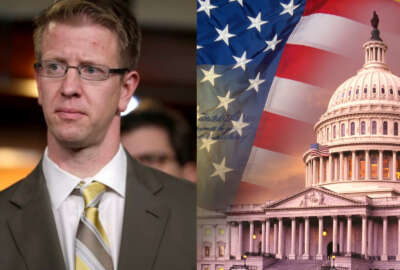Analysis: Intelligence Community as an industry
Has the intelligence community become too big for its own good? For analysis, we spoke with Federal News Radio national security correspondent, J.J. Green.
wfedstaff | June 3, 2015 8:52 am
By Rachel Stevens
Federal News Radio
The debate over the role of private industry in national security has been heating up. But national security correspondent J.J. Green says government itself, not contractors, might be most to blame for the controversy.
The Washington Post reports that 854,000 Americans with top-secret security clearances are private contractors, raising questions about efficiency and oversight.
But Green says this doesn’t tell the whole story.
He admits that the Office of the Director of National Intelligence (ODNI) has at times failed to do its job perfectly. But he says “one of the real problems is it’s being hamstrung by none other than administration itself.”
“There are many people in the ODNI, or in the intelligence community, that will tell you how frustrated they are, because they’re not able to talk about things which basically represent successes. And that’s come about because of some very tight reigns being held on them by folks down at 1600.”
ODNI has taken a number of steps to ensure oversight, Green says, but they have been unable to discuss them publically. The result has been the popular belief that no oversight exists at all.
“Not explaining it to people makes this Washington Post thing look like ‘Ok, it’s been done in secret, it’s been done in the closet,'” Green says.
It’s true that the amount of contractors in the intelligence community has grown exponentially since Sept. 11, but Green says this is “not bad in every sense of the word.”
He explains that terrorists are increasingly making use of advanced technologies, and the American intelligence community must find new methods for dealing with this. National security has become a game of “who’s got the latest, and who’s got the best,” Green says, and companies see that as a business opportunity.
“I think what we’re seeing here is the convergence of capitalism and the fact that terrorists’ goal is to bleed America dry of treasure and whatever else they can,” Green says.
Private companies are sometimes able to provide better technology and ideas than would come from the government alone, he says. And redundancies, contrary to population connotations, are sometimes encouraged within intelligence because they can help avoid “single-track thinking” or “gaps in thinking” and reduce the “stovepiping” that Green says some people believe contributed to the attacks on Sept. 11.
However, Green says strict government oversight of contractors will continue to be critical.
“It’s not a bad thing that we average Joes don’t necessarily know all the facts and figures and who the names are and where everything is, but it’s not a good thing when top government officials don’t,” he says.
Rachel Stevens is an intern with Federal News Radio.
Copyright © 2024 Federal News Network. All rights reserved. This website is not intended for users located within the European Economic Area.





